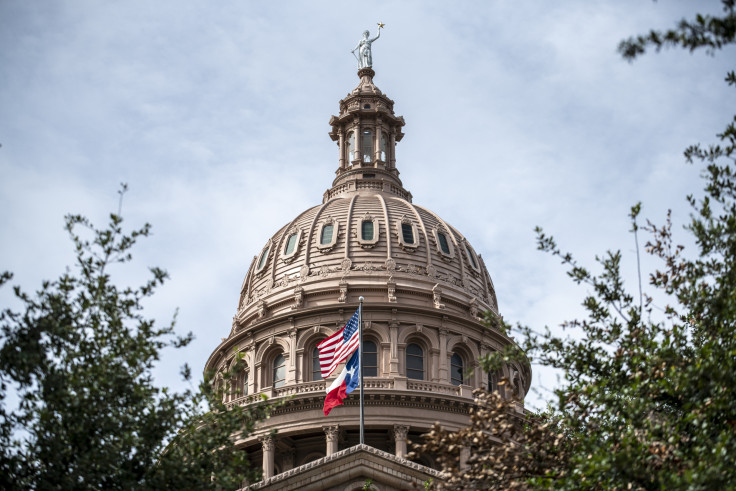
Dozens of abortion rights advocates gathered in Austin, Texas, from Friday to Sunday for a summit featuring survivors of life-threatening pregnancies, reproductive health experts, policymakers, and grassroots organizers. Together, they addressed the impact of abortion bans nationwide and shared ways they are helping women in "banned states" access safe and legal abortions. Their message was clear: "Abortion is healthcare."
The three-day summit, organized by Abortion in America (AIA), was not publicized, and its location remained undisclosed throughout to protect the safety of its participants. Hosting the event in Texas—where abortion is banned in almost all circumstances—was of symbolic significance to AIA's leadership.
"We are at ground zero of where all the abortion bans and abortion restrictions have been cooked up, devised, and implemented," said Lilian Tamayo, former President and CEO of Planned Parenthood in Florida and advisor to AIA.
As of now, 20 states have either banned abortion or restricted it earlier in pregnancy than the precedent set by Roe v. Wade, which protected reproductive rights for nearly 50 years before being overturned by the Supreme Court in 2022.
"That doesn't mean there are fewer abortions happening. There are just fewer abortions happening in banned states because people are forced to travel out of state," Tamayo explained. "And those most impacted by these laws are low-income people, Black women, and Latina women."
Karinna Solares, Director of Development for Faith Roots—a nonprofit that helps women from states with abortion bans travel to New Mexico for care—said about 90% of their callers are from Texas.
According to Solares, Faith Roots arranges weekly flights for abortion seekers from the Dallas-Fort Worth area to New Mexico. "We are pushing for more access," she said, adding that the nonprofit is considering organizing travel groups from other parts of Texas to expand accessibility.
Like Faith Roots, other nonprofit groups are adapting and innovating in their fight against abortion bans. Telehealth services like Aid Access and Charley Chatbot are at the forefront, connecting women with abortion providers who, in some cases, can discreetly mail Mifepristone—the abortion pill—using anonymous formularies.
However, despite the resources available, some women find these nonprofits too late, leaving their lives at the mercy of the law and healthcare providers afraid to lose their licenses.
Such was the case of Samantha Casiano, a Houston resident and mother of four.
"We found out in our 20-week scan that my daughter had anencephaly," she told The Latin Times. "Her brain and her skull would never fully develop, and there was no surgery that could save her. She was going to die."
Casiano discovered she was pregnant with her fifth child in December 2022, just months after Senate Bill 8—which prohibits nearly all abortions from the moment of fertilization—took effect.
Aware of the abortion ban, Casiano believed her case would be an exception, but her doctor informed her otherwise. Under the current law, she had no choice but to continue the pregnancy.
Casiano did not have the resources to travel out of state for an abortion. Her doctor also failed to inform her about organizations that help women in her situation. Left with no options, she began saving money for her daughter's inevitable funeral.
"Every day, I knew she was going to die," Casiano recalled.
When her water broke, Casiano traveled more than an hour to the nearest hospital. She went into labor, and hours later, her daughter was born with a missing skull.
"I could see her brain and how she was grasping for air—she started to change colors," she told The Latin Times. "Her eyes started to bleed. It was inhumane. It was unfair. It was cruel."
Four hours later, her daughter died in her husband's arms.
"She was here fighting for a life that I knew she was never going to have," she said.
Like Casiano, women who endured traumatic and high-risk pregnancies due to strict abortion bans in states such as Texas, Florida, and Louisiana gathered over the weekend to share their stories with the hope of changing public opinion on abortion and raising awareness of the dangers of restrictive laws that make little to no exceptions.
Recently, ProPublica reported that Texas' abortion ban has led to a sharp rise in life-threatening pregnancy complications, including a 50% increase in sepsis during second-trimester pregnancy loss. This surge has significantly contributed to a rise in maternal deaths, even as the national mortality rate has declined.
"The surge in this life-threatening condition, caused by infection, was most pronounced for patients whose fetus may still have had a heartbeat when they arrived at the hospital. ProPublica previously reported on two such cases in which miscarrying women in Texas died of sepsis after doctors delayed evacuating their uteruses. Doing so would have been considered an abortion."
— ProPublica
A group of Texas women, including Casiano, recently joined Zurawski v. State of Texas as plaintiffs, accusing the state's lack of clarity in its abortion ban law of endangering pregnant women. However, the Texas Supreme Court upheld the laws, ruling that existing medical exceptions were sufficiently clear.
Texas Attorney General Ken Paxton has recently intensified his legal threats against abortion providers, advocacy groups, and even individuals assisting Texans in accessing abortions out of state. While Paxton's reasoning aligns with Texas law, legal experts widely agree that his attempt to enforce Texas' abortion restrictions beyond state lines is legally weak.
© 2025 Latin Times. All rights reserved. Do not reproduce without permission.





